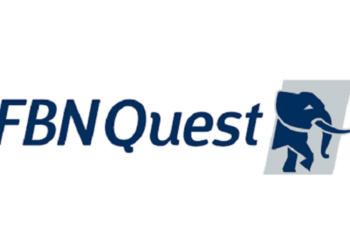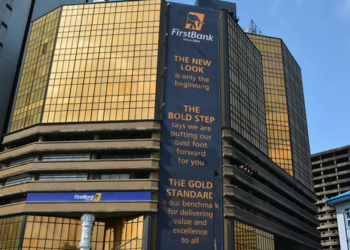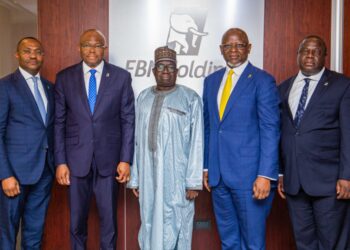FBN Holdings Plc (FBN) has about 1,201,447 individual shareholders. What does the average shareholder make of the sack of the entire board of FBN Ltd and FBN Holdings Plc? What does the Central Bank of Nigeria (CBN) communicate with these actions?
The issue at stake here is Credit Risk. FBN identified credit risk as the “single largest risk for the group.” Credit risk is essentially the possibility that a customer of the bank will borrow cash from the bank, promising to repay at an agreed interest rate, and then default on that promise.
The Genesis
The CBN Governor’s statement says that in 2016, the CBN conducted an audit of FBN and found out the institution was in “grave financial condition” with inadequate capital and loans given to the internal customer who had not paid back those loans.
READ: Full statement of Emefiele’s sacking of FBN Holdings Board
Why is this “grave?”
All businesses make money by adding a positive contribution from operations. That’s just a fancy way of saying a business makes money by ensuring it sells a good or service at a profit after coving all its costs.
A bank is set up by the promotors pooling capital together to form a company. FBN promoters created and issued fully paid up Capital of 35.89 m shares of 50k each thus a value of N17b.
Then that company gets a license from the regulator to accept deposits and create loans. The cash available to the bank to lend to customers comes from two sources; initial contribution by owners called “Capital” and subsequently Deposits.
The bank will then begin to seek new deposits from the public and in return pays a fee to rent cash or investments from the public. When the bank gets a deposit, it pays interest to depositors, so it carries a cost called Interest Expense. Eventually, a bank’s deposits grow larger than the Capital contributed. FBN in its 2020 Final Year-End results had N768 billion in Capital and N4.89 trillion in deposits. Banks then make loans and charge interest for renting out cash. It’s the payment of the rental that creates profit for the bank. So the bank takes its combined Capital and Deposits and offers them to the public as loans at a fee.
READ: CBN issues ultimatum to First Bank of Nigeria on divesting its interest in Honeywell Flour Mills
How does a bank make profit?
When a customer borrows cash from the bank, the bank makes revenue called Interest Income,
A bank makes money primarily when its interest income exceeds its interest expense, in essence, the bank “buys” cash at a low-interest cost and sells that cash at a higher interest cost. When the bank makes a positive net interest income, it makes a profit, and profit is then shared out to the promoters and shareholders of the bank as dividends, the balance is retained by the bank to do more business, thus the Capital Base of the bank grows.
What if the bank has a negative Net Interest Income, meaning the banks lent cash to borrowers who did not payback? The reverse happens, the bank makes a loss, capital depreciates.
READ: How does a bank make N19 billion a month?
Losses are bad for banks
So when CBN says the situation was grave, the CBN is saying FBN losses from loans made were threatening its ability to continue business as a bank, in essence, the bank’s capital was insufficient to allow it to keep making loans. When a bank takes collateral for a loan, the banks have to take temporary ownership of the collateral and it must internally account for that collateral. Thus, if a borrower gives FBN shares in ExxonMobil worth N2b to borrow N1b cash in yr 2000, FBN must continue to value that collateral to ensure its value remains at N2b. When the value falls below N2b or the customer fails to repay, the bank must take a charge to her income and make a provision that that loan may not be repaid.
The charges are called Impairment and Bad and Doubtful loan provisions. They reduce the bank’s cash, profits, and capital. This is what happened to FBN who created loans from her deposits, but earned no interest income from those loans, this led to capital depreciation, profits erosion, and cash depleting from the bank.
READ: How rich is Tony Elumelu and how does he make money?
Was CBN’s action correct?
The CBN back in 2016 blamed the FBN internal credit management oversight and supervised the replacement of the FBN CEO at the time with a new MD/CEO. Most importantly the CBN forced FBN to recapitalize the bank with N150b spread over 4years. From the tone of the CBN Governor’s statement, it appears FBN CEO Sola Adeduntan tried to address the insider credit of the bank by perfecting the collateral of the internal borrowers and met resistance leading to his earlier removal as MD/CEO. If this was the case, then the CBN actions seem right along the lines of protecting the customer’s deposits which (remember), are many times the capital of the internal owners of FBN.
A few questions however come to mind. If the erstwhile board had not replaced Sola Adeduntan with his deputy as MD/CEO, would the CBN have allowed the bank to continue to operate without the perfection of collateral or repayment from internal borrowers?
What about FBN Board Corporate Governance? The FY 2020 report says the FBN Audit Committee “reviewed the audit report on insider-related party transactions and is satisfied with their status as required by the CBN” dated March 8th, 2021. The CBN signed off on those annual reports, yet the CBN Governors statement in April 2021 says “as at December 2020, the insider loans were materially non-compliant, specifically non-perfection of liens. The CBN past enforcement in this regard was “reminders.”
What about the auditors? I read through the 2020 annual report, and you have to be an accountant to understand the way this issue is framed with “Expected Credit Loss,” “Lifetime Probability of Default,” “Credit Conversion Factor,” and “Loss Given Defaults.”
These measures are apt in context but if the common shareholder does not understand them, then there may be an opportunity for regulation to mandate that these annual reports be written in simple, non-technical terms. A model can be the US Consumer Financial Protection Bureau set up to ensure banks and lenders “treat you fairly.”
On a final note, the CBN fired the Boards which included Oye Hassan Odukale MFR, and then appointed Tunde Hassan Odukale, these are brothers and insiders, but I digress.





















